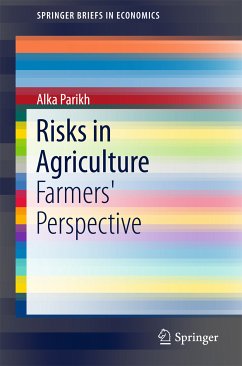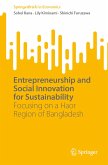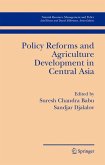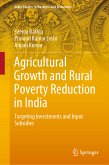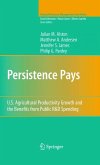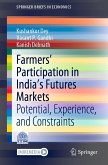This book examines the risks involved in agriculture from the farmer's perspective. It investigates the issues that concern farmers the most like why farmers are not increasing the acreage allotted to pulses despite major increases in the price. Primarily based on focused group discussions (FGDs) and individual interviews, it also analyzes the productivity levels for 18 crops using data from eleven districts in several Indian states.
The main risks that farmers face can be divided into two categories-production risks and price risks - and fluctuations in either one can lead to uncertainty in terms of revenues, and at times to considerable losses. The book demonstrates that agricultural productivity, especially in India's semi-arid tropics, leaves much to be desired when compared with other nations. It offers a unique and valuable resource, not only for agriculture economics researchers and all those interested in agriculture, but also anyone seeking to understand current trends in acreage for various crops, fluctuating production levels for different crops, price fluctuations, and farmers' views on allotting acreage and crop insurance.
Dieser Download kann aus rechtlichen Gründen nur mit Rechnungsadresse in A, B, BG, CY, CZ, D, DK, EW, E, FIN, F, GR, HR, H, IRL, I, LT, L, LR, M, NL, PL, P, R, S, SLO, SK ausgeliefert werden.

